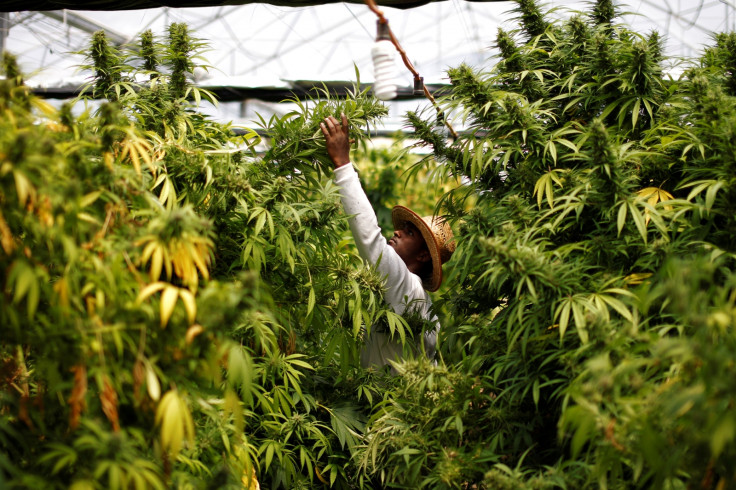Cannabis-based oil reduces seizures in patients with hard-to-treat epilepsy
Some patients with Lennox-Gastaut syndrome saw the number of seizures reduced after taking CBD oil.

A molecule extracted from the cannabis plant and tested as treatment for hard-to-treat epilepsy has shown promising results. Taking an oil-form of cannabidiol cut down seizures by half in some people suffering from Lennox-Gastaut syndrome, a severe form of the disease.
Cannabis has long been used both recreationally and medicinally, with some epilepsy sufferers claiming it had helped them with their seizures. However, in the 1960's and 1970's, the drug became increasingly stigmatised and interest in studying its therapeutic properties decreased.
But in recent years, there has been new interest in testing cannabis-based medicines to treat severe epilepsy.
Investigating the effects of CBD
Two components of cannabis are of particular interest to researchers – THC, which is the main psychoactive substance and cannabidiol (CBD), the main non-psychoactive substance.
In 2014, the story of Charlotte Figi, a six-year-old from Colorado who suffered from Dravet syndrome (another severe form of childhood epilepsy) was widely reported. No treatment seemed to be working for the little girl, so her parents convinced two doctors to prescribe an oil with low THC and high CBD concentrations. The medicine reduced her seizures to just two or three per months, down from about 300 per week.
Although many medicines have been developed in the last 100 years for epilepsy, treatments for epilepsy only result in seizure freedom for about 70 per cent of patients. The situation is particularly grim for those with refractory epilepsy (such as Dravet syndrome or Lennox-Gastaut syndrome) which starts in childhood and can involve multiple seizures on a daily basis, with cognitive impairment, developmental delays and behavioural disturbances.
Anecdotal evidence from Charlotte's case and the legalisation of medical cannabis in some US states have prompted scientist to investigate how the plant may help people with refractory epilepsy. The latest study on the subject is presented at American Academy of Neurology's 69th Annual Meeting in Boston this week.
New promising findings
The research evaluated the benefits of cannabidiol in 225 people with an average age of 16, who were suffering from Lennox-Gastaut syndrome. The randomised, double-blind, placebo-controlled study lasted for 14 weeks and tested whether an oil-form of cannabidiol reduced the number of a specific type of seizures, known as 'drop seizures', compared to a placebo.
Participants had an average of 85 drop seizures monthly and they had previously tried an average of six epilepsy drugs that did not work for them. During the study, they were taking an average of three drugs.
They were given either a higher dose of 20 mg/kg daily cannabidiol, a lower dose of 10 mg/kg daily cannabidiol or placebo, as an add-on to their treatment.
The scientists reported that those taking the higher dose had a 42 per cent reduction in seizures overall. For 40 per cent of them, seizures were reduced by half or more. The group taking the lower dose had a 37 per cent reduction in seizures overall, while participants taking the placebo had a 17 per cent reduction overall.

Side-effects were also evaluated and reported in 94 per cent of participants taking the higher dose of CBD oil, 84 per cent of those taking the lower dose and 72 per cent of those taking placebo. However, these were moderate side-effects – the two most common were decreased appetite and sleepiness.
A magic bullet for epilepsy patients?
While these findings seem encouraging, it's important to note that cannabidiol probably won't offer a "magic bullet" for people suffering from refractory epilepsy. CBD-oil appears to help specific patients, but not all of them. It's unlikely that it would "cure" epilepsy.
Ley Sander, medical director at Epilepsy Society and professor of neurology at University College London told IBTimes UK:
"Lennox-Gastaut syndrome is an old denomination for children with very severe epilepsy, with several seizure types. People with this condition are a very heterogeneous group, so it's difficult to find a treatment that will fit all. Here, participants had an average age of 16 but patients don't normally make it to adulthood, so it's possible that they are not entirely representative. The study also didn't last very long, 14 weeks is not enough to assess the effect of the drug from a clinical point of view".
Furthermore, the difference in seizure reduction between participants taking the drug and those on placebo was statistically significant, but it was far from being dramatic.
Another important point that scientists will have to address is whether the medicine will have long-term effects of the developing brain of young patients. Some may argue that the benefits of taking the drug outweigh the risks, but it is an issue that will have to be investigated further.
© Copyright IBTimes 2025. All rights reserved.






















